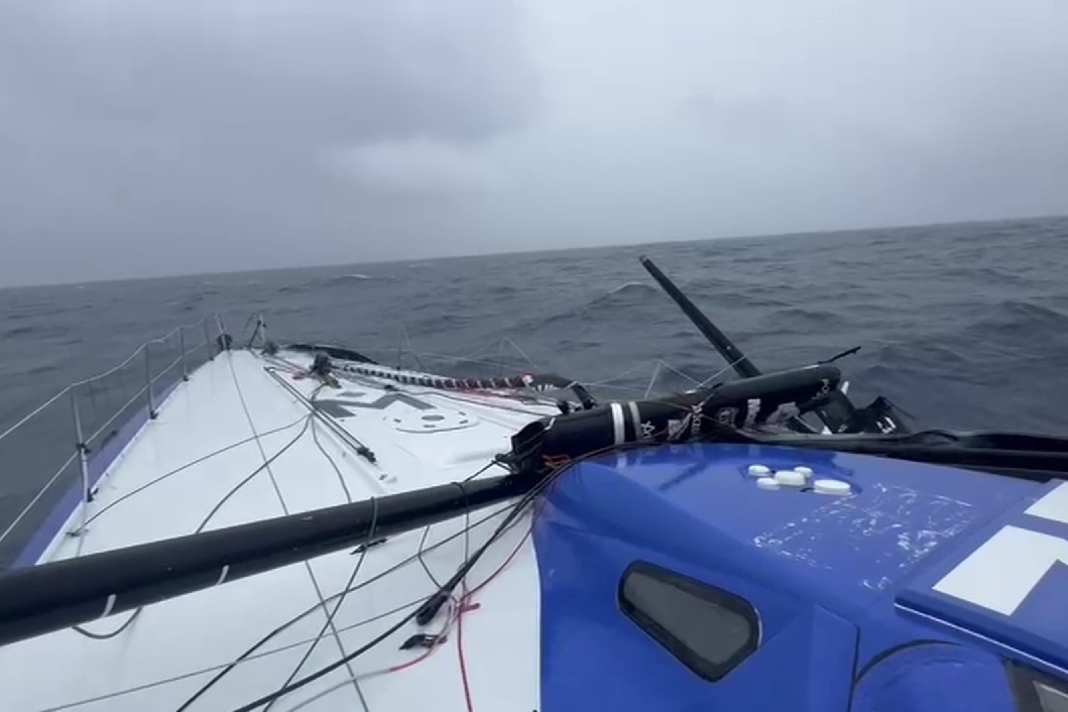





Vendée Globe skipper Pip Hare lost her mast last night at around 20:45 German time. The accident occurred at position 15, around 800 miles south of Australia. The 50-year-old is uninjured and has already been able to set up an emergency rig on her "Medallia".
"There's no good news today. I don't know what happened. 'Medallia' just took off - and when she landed, the mast came off the top in two pieces," explained the visibly shaken Pip Hare in a first clip from See. "That's the end of our Vendée Globe 2024."
After mast breakage: 700 nautical miles under emergency rigging ahead
After three hours of work on deck to secure the rigging parts and prevent further damage to the boat, which has so far been largely undamaged, the British vessel was able to set up an emergency rig and is currently travelling towards land at 4 knots. It is still unclear which harbour in the south of Australia "Medallia" will head for. However, there are definitely still almost 700 nautical miles to cover in sometimes rough seas. "I don't think I can put into words how I feel at the moment. It's just about doing the practical things to look after myself and the boat," says Hare.
On the verge of tears, the skipper then thanks not only her fans, but also her team: "Thank you so much to everyone who has worked so hard over the past four years to make this race possible. We've all invested so much in this race and I'm so sorry to see it end like this."
Vendée Globe: Pip Hare wants to return
After Maxime Sorel on "V&B Monbana-Mayenne" and Louis Burton's "Bureau Vallée", the fastest boat in Vendée Globe history is now out of the race. In 2016, the Frenchman Armel Le Cléac'h broke the existing distance record of 74 days, 3 hours and 35 minutes on Pip Hare's VPLP-Verdier design. At that time under the name "Banque Populaire VIII".
In her first statement, however, the Vendée Globe nineteenth of 2020/21 is already looking ahead, giving herself and her supporters hope: "It's not the end, it's never the end. I hope that when I'm on the coast, we'll have a really good plan for how to get 'Medallia' sailing again and return to Europe - and get back on the race course in 2025."
